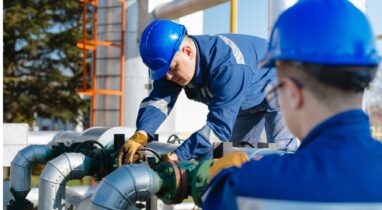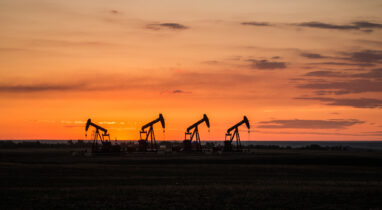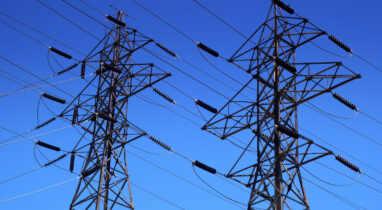Without tightening Alberta’s industrial carbon pricing system, the province could miss opportunities to benefit from growth in jobs and investment in the emerging low-carbon economy — and Canada could miss its emission-reduction targets.
The time to make these changes is now, as the federal government prepares to approve provincial industrial carbon pricing systems for the next five years.
Those are some of the findings in a new comprehensive analysis of Alberta’s Technology Innovation and Emissions Reduction (TIER) regulation, by Calgary-based consultant Grant Bishop and Clean Prosperity.
“There are important changes to Alberta’s industrial carbon pricing system that can help it better deliver the economic benefits that will come from decarbonization, as well as the emissions cuts required to meet Canada’s climate targets,” said Clean Prosperity Executive Director Michael Bernstein.
The problem: a looming oversupply of carbon credits
The Alberta TIER system is designed to incentivize industry to reduce its greenhouse gas emissions by requiring facilities to pay a carbon price on a larger share of their emissions every year. If facilities cut emissions below a certain threshold, they earn credits that they can sell to other emitters, to cover their TIER obligations. As well, new decarbonization projects like carbon capture and storage installations earn offsets that emitters can buy to satisfy their obligations.
The problem is that the TIER system is headed for an oversupply of carbon credits. Clean Prosperity’s analysis shows that as Alberta decarbonizes, the share of industrial emissions that face a carbon price isn’t going to increase fast enough to create sufficient demand for the growing supply of credits.
Oversupply would depress credit prices, which threatens to stall Alberta’s efforts to decarbonize industry. Increasingly, firms will be able to buy cheap credits instead of cutting their emissions. And uncertainty about future revenues from carbon-credit sales will hold up urgently-needed investment in major new decarbonization projects, which need those revenues to make their projects economic.
“There are important changes to Alberta’s industrial carbon pricing system that can help it better deliver the economic benefits that will come from decarbonization, as well as the emissions cuts required to meet Canada’s climate targets”
Clean Prosperity Executive Director Michael Bernstein
The solution: adaptive tightening of TIER
Alberta has proposed to tighten the stringency of TIER obligations for most industrial facilities by 2% per year. However, Clean Prosperity’s analysis indicates that this will not ensure that demand for credits will exceed supply — the market conditions which are necessary to drive decarbonization.
Instead of applying a fixed rate of increase, the Alberta government could consider using adaptive tightening. The share of emissions that face a carbon price could be increased every year at whatever rate is required to keep demand for credits consistently higher than supply. This would give industry the confidence to invest now in long-term decarbonization, knowing that they can count on the future value of the credits they earn.
Getting TIER right is critical for Canada’s climate goals and the Alberta economy
It’s critically important that TIER work effectively to reduce emissions from Alberta industry, because so many of Canada’s industrial emissions are regulated under the Alberta system. In 2020, TIER covered over 50% of emissions from large-emitting facilities across the country.
Alberta industry will need to reduce its greenhouse gas emissions on the scale of 70 megatonnes by 2030 in order to achieve Canada’s climate target of a 40% reduction in emissions below 2005 levels. That’s about a quarter of the cuts required across the Canadian economy, and over half of the total emissions reductions required from industry.
In addition, the future growth of jobs, investment, and the Alberta economy is strongly linked to rapid decarbonization. While TIER needs to tighten at an increased rate in order to incentivize major investments in low-carbon projects like carbon capture and storage, the Alberta and federal governments will also need to consider the near-term economic impacts of a more stringent TIER.
That means protecting the competitiveness of Alberta industry against an unlevel playing field with competitors from jurisdictions where climate action is less ambitious. One way to address this challenge is through border carbon adjustments, which impose tariffs on the carbon content of imports, and could also rebate the carbon price to exporters.




